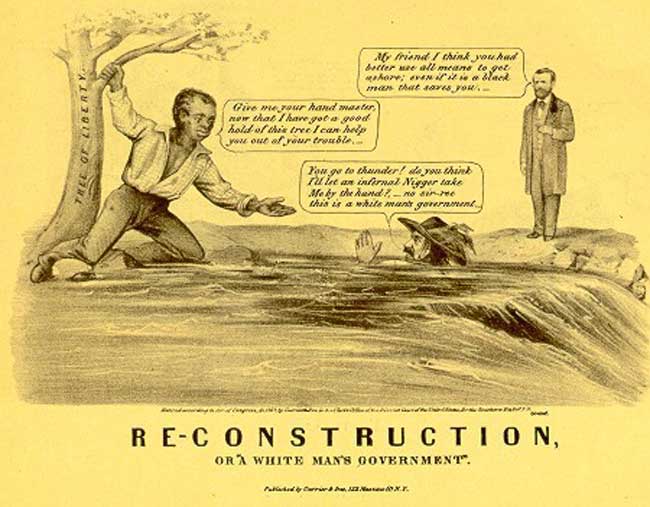Since the early twentieth century, it has been a common phrase among Reconstruction scholars to say something to this effect: “the North won the war, but the South won the peace.” I remember first reading that in Nina Silber’s amazing book The Romance of Reunion (still one of my all-time favorites). But, of course, we know all such common phrases obscure as much as they reveal. So today, in my Reconstruction lecture, I want to hit a few points that typically get ignored:
- A reconfigured white supremacy won the peace, and
- There was not much peace to begin with (North, South, East, West, or overseas)
- The Union won the postwar period, too, because there was NOT another Civil War (at least not yet)
- The Civil War is still with us because of what it left changed (slavery) and what it left unchanged (legal racial and gender discriminatory legislations)
Anything else that you would add to the general narrative?




As you would know better than anyone, Ed, churches remained separated as a result of the legacy of slavery: the most notable being the split between Northern and Southern Presbyterians, Methodists, and Baptists. And the process, over a period of time, by which blacks began creating their own separate churches or leaving white churches.
Ed, I guess part of your point is that the South didn’t win the peace, not only because the remain part of the union, but also because that formulation suggests that the racism that emerges with Jim Crow wasn’t in the North in the antebellum era, and that’s just wrong. So the phrase itself is a way for the North to exonerate itself from the nation’s racism, to make it “a southern thing” that they brought with them when they “won the peace,” as opposed to, say, an American thing that extended through and beyond slavery. If so, I’d bring that point out too.
I would argue that the Civil War was not a war against racism but slavery, however, and the way Reconstruction ended in 1876 – over the disputed presidential election – allowed the defeated former Confederate states to institutionalize the exclusion of blacks from mainstream Southern political and economic life to a degree unknown elsewhere in the Union. Racism existed throughout the U.S., (remembering that the revived KKK’s largest group in the 1920s was in Indiana, for instance) but violence (i.e., lynchings) and legal exclusion of blacks, relegating them to a status below even second-class citizens (if citizens are at least allowed to vote), was unique to the post-Reconstruction South.